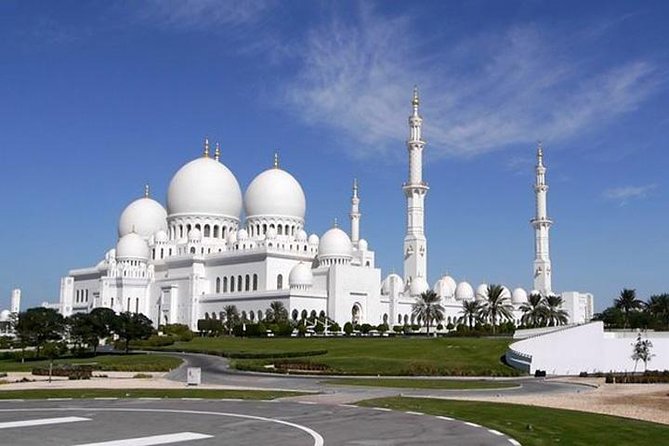
A Cultural Journey Through Angola’s Rich Heritage
Angola has heart, soul, and stories to tell. Cultural riches of the country can be traced back centuries, from tribal traditions to colonial buildings. In case you decide to visit this fascinating land, the first thing you need to do is to obtain your Angola visa in advance to plunge into the bright past and present of this country.
To begin this amazing voyage, it is critical to grasp the Angola visa application process. As soon as that happens, you are ready to discover the historical kingdoms, local art, soulful music, and traditional customs. The cultural environment of Angola is vibrant, eclectic, and highly communal, which makes it ideal to the travelers who appreciate authenticity and experiences.
Here’s A Cultural Journey through Angola’s Rich Heritage
1. Luanda’s Cultural Fusion
Luanda, the capital city, provides an active mix of contemporary life and historic appeal. Colonial architecture rises next to glass skyscrapers, and the National Museum of Anthropology presents an idea of how the Angolan culture developed. Whether you are at the street market or the art gallery, Luanda is an ideal place to jumpstart into the Angolan heritage.
2. Ancient Kingdom of Mbanza Kongo
This World Heritage Site used to be the capital of the powerful Kingdom of Kongo. Tourists will be able to visit the royal palace ruins and religious places that will tell about ancient African government and religion. Mbanza Kongo provides a profound insight into the pre-colonial civilization of Angola and its role in the cultural identity of this country.
3. Traditional Music and Dance
Angolan culture is inseparable without music and dance that are the narrations of life and past. Festivals and local gatherings are characterized by the rhythmic style such as semba, kizomba, and kuduro. These are not mere entertainments, but expressions of life of the Angolans and their happiness and survival.
4. Vibrant Local Festivals
The festivals in Angola are vibrant, vibrant and traditional. Carnival of Luanda and FestiSumbe are the events that unite communities with parades, music and attire. The festivals will provide their visitors an opportunity to experience local pride and enjoy cultural traditions on their own, as well as local friendly and welcoming locals.
5. Indigenous Tribes and Traditions
Angola is a fairly varied country, having more than 90 ethnic groupings. Such tribes as Ovimbundu, Bakongo and Chokwe maintain their languages, rituals, and ways of life that have been kept through generations. By visiting such communities, travellers will have an opportunity to know more about the ancestral practices and other customs that still define the lives of the people in the rural places of Angola.
6. Angolan Handicrafts and Art
Traditional handicrafts of Angola are the embodiment of the art of the country. Artisans produce pottery, woven baskets, wooden masks and finely beaded objects that depict history and cultural symbols of the country. Luanda and rural markets are gold mines of real handmade products. Each of the pieces is a story, be it a story about tribal beliefs, local wildlife, or daily life, and gives a visitor an opportunity to take a part of the Angolan culture home.
7. Culinary Culture and Local Cuisine
Angolan food is a spiced mixture of African and Portuguese flavors. Such signature dishes as funge (cassava porridge), calulu (vegetable stew) and moamba de galinha (spicy chicken) are typical in every home countrywide. Dinners tend to be passed around the table as a family, as a show of the value of community. Angolan cuisine is not just about eating to fill your stomach, but it is a social activity that brings people together, it is a culinary culture that is rich in heritage and taste.
8. Colonial Heritage and Historic Sites
The colonial history is visible in the historic architecture of Angola especially the stone churches in Luanda and the forts along the coast. Such places as the Fortress of Sao Miguel constructed during the 16th century provide panoramic sceneries and rich historical backgrounds. The landmarks remind of Portuguese influence but also emphasize the power of a post-independence identity of Angola.
Conclusion
Angola is a nation, which the culture gives life to the cities, villages, and landscapes. Whether it is the rhythmic dances of the local tribes or the colonial echoes in medieval architecture, each of the areas has its own cultural treasure. Visiting Angola is an experience of touching the very soul of this country, trying a real local food, and feeling the hospitality of the people who are proud of their culture. It is a place to visit to those who want something more.
To make the most out of this life-enriching experience, leave the organization of your cultural getaway to Go Kite Travel. They know all there is to know about the country, whether it is assistance with travel plans or information about local traditions, and they will make sure you are able to explore Angola without any difficulties.
Recent Posts
Top Historical Sites in Uzbekistan
Discover Australia’s Stunning Coastline on an Epic Road Trip
Why Kids Love the Hot Air Balloon Ride in Dubai
Tags

Dubai




